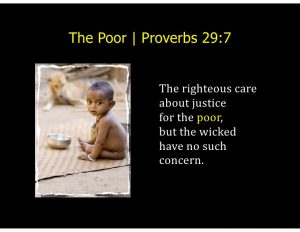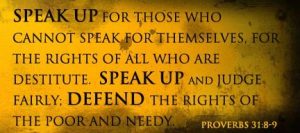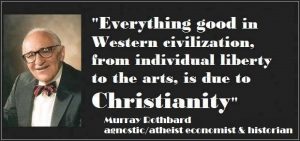NOTABLE QUOTES
- “I will walk in freedom, for I have devoted myself to your commandments.” Psalm 119:45
- “For the Lord is the Spirit, and wherever the Spirit of the Lord is, there is freedom.” 2 Corinthians 3:17
Why do nations rise and fall, become stronger and then weaker? The Bible gives the reason in one verse.
“Godliness makes a nation great,but sin is a disgrace to any people.” Proverbs 14:34 (NLT)
Nearly all developed nations in modern times either followed Bible principles directly in the past (such as America and Europe) or they learned indirectly from nations that had done so (such as Japan). Korea learned some from other nations about the Bible, but then went quite a bit beyond others in following Bible economics at the government level. This helped sky rocket its economy from the ashes of war to being in the top 15 economies in the world, despite its small size. Many scientists and pastors and others have studied this extensively and come to the realization that the Bible is the main factor in the development of nations.
Dr. Loren Cunningham explains in this lecture and an associated book titled:
The Book that Transforms Nations
Why is the Bible so powerful in helping to develop civilizations? Many scholars have written about many reasons for this. But here are a couple of the more important ones:
1) Christians want people to know God better and to be saved for eternity? They believe that God has communicated all the most important truths through the Bible so that people can know God better and learn His valuable wisdom to solve challenges in their lives or endure and overcome them. Since they believe this, they want everyone to be able to read and understand the Bible.
2) Since they want people to read the Bible and because they want each person to be as independent and self-supporting as possible, they have established countless schools, education centers and research centers around the world.
3) God through the Bible was the first to speak about every major human right in history. The Bible has 1000s of verses about human rights. They are all based on the golden rule and the principle that every person as a creation of God is equal to all others.
4) The Bible teaches that we can learn about God from nature. Knowing about nature and science well can help people to have stable work as well. In addition, the scientific method, the first experiment in history with a control group and other concepts of rational and scientific thinking were first mentioned in the Bible. For these and other reasons, Jews and Christians have been inspired to study nature quite a bit more than any other worldview.
Dr. Woodberry is a scientist from the University of North Carolina–Chapel Hill (UNC) and he has done exhaustive research which confirms what pastor Cunningham said. His research show decisively that protestant missionaries (esp. those not connected to the government) are responsible for over 50% of democracy, higher levels of printing, education, economic development, organizational civil society, protection of private property, the rule of law and lower levels of corruption in modern society[1].
Daniel Philpott, professor of political science and peace studies at the University of Notre Dame, reviewed the work:
“For [Woodberry] to show through devastatingly thorough analysis that conversionary Protestants are crucial to what makes the country democratic today [is] remarkable in many ways. Not only is it another factor—it turns out to be the most important factor. It can’t be anything but startling for scholars of democracy.”
Dr. Woodberry became interested in this topic when a professor told Woodberry that there seemed to be some connections between missionaries and democracy. Robert started researching this. He spent months looking at old maps, history books, missionary travels, etc.
Woodberry traveled to Togo in 2001 and went to a top university. He found that the whole university didn’t have even 1/2 the books he did.
“Where do you buy your books?” Woodberry stopped to ask a student.
“Oh, we don’t buy books,” he replied. “The professors read the texts out loud to us, and we transcribe.”
But across the border, at the University of Ghana’s bookstore, Woodberry saw shelves lined with hundreds of books, including books by local scholars. Why the difference? The reason was clear: In the past, British missionaries in Ghana had established a whole system of schools and printing presses. But France, the colonial power in Togo, restricted missionaries. The French only wanted to educate a few smart people. This caused the difference.
In the Congo, both French and Belgian colonists had forced villagers to get rubber from the jungle. If they didn’t, they burned down villages, cut off hands and feet and did other horrible things. In the French Congo, no justice was done and it wasn’t even news. But in Belgian Congo, a huge protest started. Why the difference? Woodberry found out that there were missionaries in the Belgian Congo, especially 2 named John and Alice Harris who took photographs of the terrible crimes—including a picture of a father gazing at his dead daughter. They took this evidence all over the United States and Britain and protested the abuses and that brought important changes to the Congo.
“Mass literacy and mass education were…deliberate projects—the consequence of a Protestant vision that knocked down old hierarchies in the name of ‘the priesthood of all believers.’ If all souls were equal before God, everyone would need to access the Bible in their own language. They would also need to know how to read.
“They focused on teaching people to read,” says Dana Robert, director of the Center for Global Christianity and Mission at Boston University. “That sounds really basic, but if you look worldwide at poverty, literacy is the main thing that helps you rise out of poverty. Unless you have broad-based literacy, you can’t have democratic movements.
“As Woodberry observes, although the Chinese invented printing 800 years before Europeans did, in China the technology was used mostly for elites. Then Protestant missionaries arrived in the 19th century and began printing tens of thousands of religious texts, making those available to the masses, and teaching women and other marginalized groups how to read. Not until then did Asian authorities start printing more widely.”
In Korea, King Sejong invented Hangeul, which is the most efficient and scientific alphabet in the world (It won the alphabet olympics 3 times and they closed it down since no other alphabet can compete. It’s possible to learn to read it in ~2 hours or even less. It’s that good.). But Korean scholars still used Chinese. The powerful elite didn’t want people to learn to read and be able to get knowledge to detect the exploitation that elites are always involved in to some degree. But when Christians came and began starting schools, they realized that Hangeul was much easier to learn and more efficient. So it became the language of education in Christian schools and later in other schools. Christians were the first to use Hangeul to teach students in schools. They also started many of the schools in the country and influenced many government policies. ~1/2 of the signers of the Korean protest against the Japanese were Christians. So, the Korean govt. followed many Christian ideas. Many Korean freedoms and the reason people use Hangeul are largely because of Christianity.
Basically, missionaries were major factors in bringing democracy to over 50% of countries in the world as well as other major freedoms. They were the #1 cause, more important than all other causes combined.
Layman and academic summaries of Dr. Woodberry’s research can be found here:
https://www.disciplenations.org/media/CT-Article-On-Missionaries-And-Global-Democracy.pdf
and
[1] The Missionary Roots of Liberal Democracy, Robert D. Woodberry, p. 43, http://isites.harvard.edu/fs/docs/icb.topic965299.files/Woodberry%20APSR%202011.pdf
See many more examples of how Judeo-Christianity pioneered all major human rights here:
http://www.truth-is-life.org/GoodLifeEvidence.html


